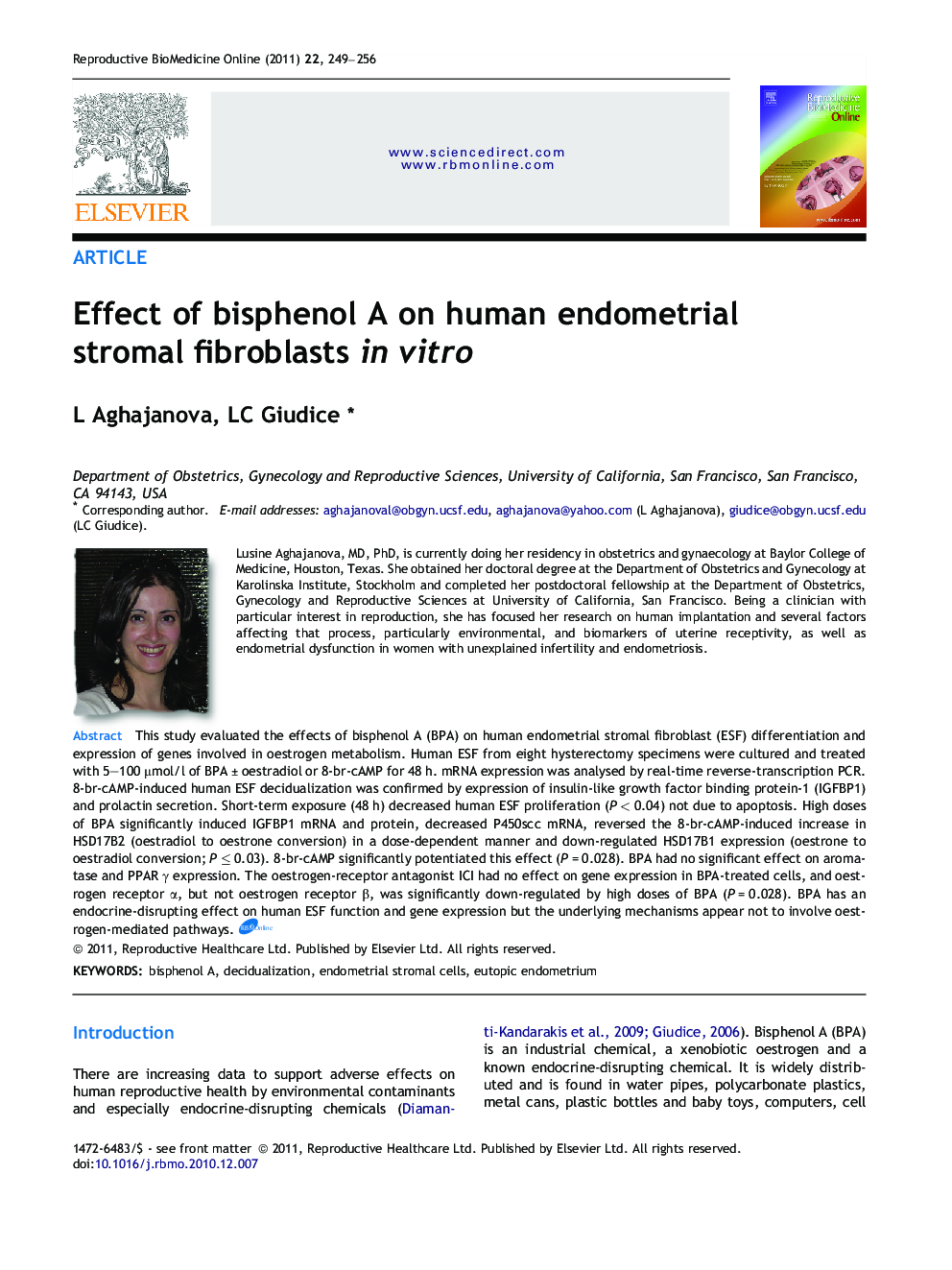| Article ID | Journal | Published Year | Pages | File Type |
|---|---|---|---|---|
| 3970676 | Reproductive BioMedicine Online | 2011 | 8 Pages |
Abstract
Studies of the effects of bisphenol A (BPA), an endocrine disruptor, on the endometrium, a steroid hormone-sensitive tissue in which an embryo implants to establish pregnancy, are limited. Herein, we evaluated the effects of BPA on human endometrial stromal fibroblast (ESF) differentiation and expression of several genes involved in oestrogen metabolism. Human ESF were isolated from eight hysterectomy specimens, free from endometriosis or adenomyosis. They were cultured and treated with 5-100 μmol/l of BPA with or without oestradiol or 8-br-cAMP (a decidualization/differentiation stimulus) for 48 h. mRNA expression was analysed by real-time reverse-transcription PCR. 8-br-cAMP-induced human ESF decidualization (started 48 h prior to BPA) was confirmed by insulin-like growth factor binding protein 1 and prolactin secretion. Short-term exposure (48 h) of endometrial stromal cells to BPA significantly decreased human ESF proliferation, which was not due to increased apoptosis. High doses of BPA significantly induced differentiation in a dose-dependent manner to the same extent as 8-br-cAMP and significantly potentiated its effect. BPA had a significant effect on the expression of the enzyme that makes oestrogen, although the oestrogen-receptor antagonist had no effect on gene expression in BPA-treated cells. Interestingly, the main receptor that mediates oestrogen signalling, oestrogen receptor α, was significantly down-regulated by high doses of BPA. BPA thus has an endocrine-disrupting effect on human ESF function and gene expression. The effects on subsequent endometrial function remain to be determined.
Related Topics
Health Sciences
Medicine and Dentistry
Obstetrics, Gynecology and Women's Health
Authors
L. Aghajanova, L.C. Giudice,
